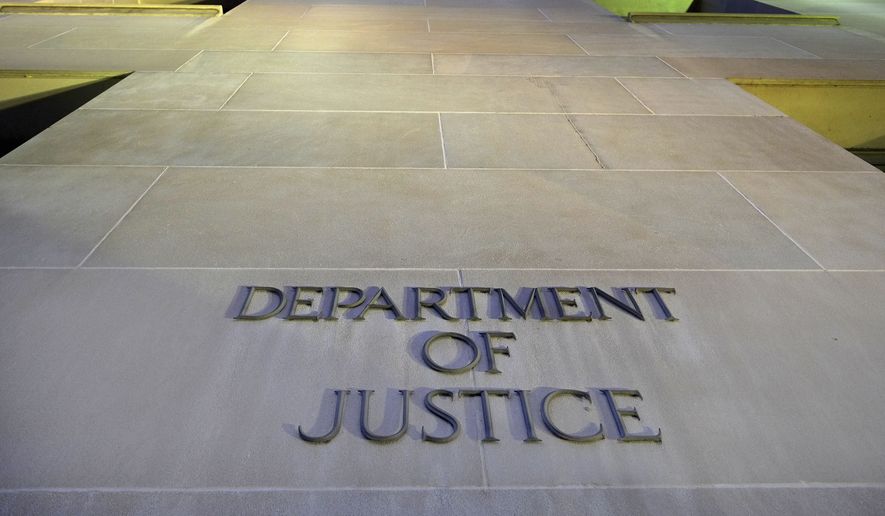Attorney General William P. Barr said Thursday that he would take the Trump administration’s effort to restart federal executions to the Supreme Court, if necessary, after a federal judge temporarily halted an execution scheduled for next month.
“There are people who would say these kinds of delays are not fair to the victims, so we can move forward with our first group,” Mr. Barr said Thursday, according to The Associated Press.
U.S. District Judge Tanya S. Chutkan, an Obama appointee, on Wednesday night said the Justice Department’s new execution protocol likely runs afoul of the legal authority for executive rule making laid out by Congress.
She also said not issuing an injunction would cause irreparable harm for the inmates who would be put to death before their legal challenge winds through the courts.
“Plaintiffs have clearly shown that, absent injunctive relief, they will suffer the irreparable harm of being executed under a potentially unlawful procedure before their claims can be fully adjudicated,” the judge wrote in a 15-page ruling.
Her ruling temporarily postpones four of the five scheduled executions beginning next month. The fifth had already been halted.
Daniel Lewis Lee, a white supremacist who murdered a family of three, was to be the first of the five new executions scheduled. His date was set for Dec. 9.
The Justice Department filed a notice of appeal Thursday, and the Justice Department petitioned to have the injunction stayed so the executions could proceed as planned.
Justice had announced a new death penalty protocol in July, following a review ordered by President Obama in 2014 of capital punishment and lethal injunction drugs.
Mr. Barr approved a single drug, pentobarbital, for the injection, adopting the same protocol used in Texas and at least four other states. The new procedure replaces the three-drug combination previously used in federal executions.
Pentobarbital has been used in at least 200 executions, and the Justice Department said its use as an execution drug has been upheld by the Supreme Court, which ruled it does not violate the Eighth Amendment’s prohibition on cruel and unusual punishment.
The new policy makes good on President Trump’s stance that the death penalty is an important criminal justice tool, and it fulfills a goal of former Attorney General Jeff Sessions, who sought to update federal protocols.
But Judge Chutkan said in her opinion that the inmates’ legal challenge to the procedure was likely to succeed because the Federal Death Penalty Act requires that federal executions use procedures used by the states in which they are carried out.
Mr. Barr, in making the decision to resume federal executions, ordered the Bureau of Prisons to schedule executions of five death row inmates who were convicted of murdering children and the elderly, picking cases that involved heinous crimes and where the criminals have exhausted their appeals.
The executions were scheduled to take place at the U.S. penitentiary in Terre Haute, Indiana, with the first having been slated for December.
Four of the men filed a legal challenge, saying the new protocol is unlawful and unconstitutional. Depositions are set to be complete by the end of February, as the litigation is expected to continue through spring 2020.
Shawn Nolan, who is representing one of the men facing a federal execution, said the Justice Department is trying to implement a protocol that has not been authorized by Congress.
“By granting the preliminary injunction, the court has made clear that no execution should go forward while there are still so many unanswered questions about the government’s newly announced execution method,” Mr. Nolan said.
The last federal execution was in 2003 when Louis Jones was put to death for kidnapping and killing Army soldier Tracie Joy McBride.
Since then, execution methods have faced a number of hurdles, including a pressure campaign by activists to deny access to the drugs used in lethal injections.
That has slowed the pace of executions in the 25 states where executions are able to take place, and it “complicated and prevented” executions at the federal level, a department official said.
The federal government carried out 37 executions between 1927 and 2003, and 62 inmates are on federal death row.
• This article is based in part on wire service reports.
• Alex Swoyer can be reached at aswoyer@washingtontimes.com.




Please read our comment policy before commenting.